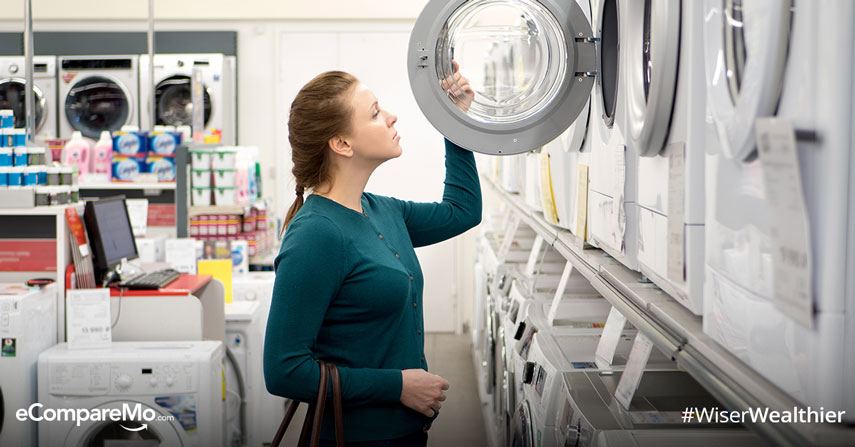9 Things Appliance Salesmen Don’t Want You To Know
3 min readWading through a sea of shiny tech inside the appliance center, it’s but instinctive to seek assistance from store personnel.
But while it is crucial to have a Q&A portion with the assigned salesperson to familiarize yourself with the specs of an appliance you’re eyeing, it is your duty as a self-respecting consumer to do your homework before setting foot inside the store, lest be prepared to be the recipient of unabashed sales talk that goes like this:
“Ma’am, mas okay po ’to kasi digital inverter na. Mas tipid sa kuryente.â€
“Eto po may free item.â€
“Assembled in Vietnam pero Japan po yung parts n’yan.â€
The Consumer Act of the Philippines (RA 7394), however, regulates sales practices to protect costumers against deceptive sales and retail practices.
So how do you keep yourself from falling for all the sweet talk and make sure you’re spot-on with purchase? Here are some appliance-buying tips to bear in mind.

1. The freebie conspiracy.
Some “sales promos†are more of a shocker than a saver. What you don’t know is that the price you paid for includes the supposedly “free†item. Rather, ask for a discount for cash or straight credit card payments. The price can go much lower than what’s stated on the tag.
2. You don’t need extended warranties.
Your appliance might probably break down way after the extended warranty has expired. That is, if you’re buying a brand with optimal reputation for quality and durability. Save your money for regular maintenance instead.
3. After-sales can be a problem.
Many brands do not have their own service center in the Philippines. Buying an appliance dirt-cheap without guarantee for after-sales services is a recipe for disaster. Make sure you get ask about the brand’s repair providers before making your purchase.
4. Cheap appliances will deny you of a good night’s sleep.
So, you bought an electric fan for a relatively good price. Problem is, it can keep you cool but leaves you sleepless. Checking the decibel levels is important if you want to maintain peace and quiet in your home.
5. You probably won’t hear this money-saving spiel.
It is true that energy-efficient appliances are way more expensive. But think about the thousands of pesos you will save in the long run. Check the label look for the “EEF†rating. The higher the EEF, the more cost-efficient the appliance is. Tip: Top freezer refrigerators are more energy efficient.
6. Energy-saving devices are a waste.
You’ve probably heard of anti-leakage device, gas-saving apparatus, or electricity-saving plug-ins, which you have to buy separately and connect to your appliances. These items do not usually work and actually consume more power. For safety, buy items with Energy Star stickers.
7. The usual mess no one talks about.
When buying a fridge, opt for one that has an automatic defrost feature. Manual defrost models don’t only consume more electricity, they are also harder to maintain as the melted ice can trickle down to your stored food.
8. You’d rather not return or exchange.
Not a lot of people have heard of the restocking fee. This means if you want to return and exchange an item, they will ask you to pay for a restocking fee, which is around 10% to 20% of the amount purchased.
9. Help yourself.
Search online for feedback and possible defects before making your purchase. Sales personnel are not electricians; they’re only trained to deliver their spiel. Don’t let your fate rest on their hands.
